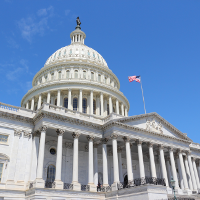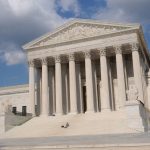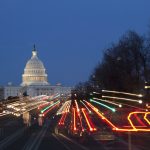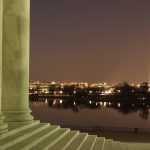 Over the past ten years, the United States patent system has been transformed by new legislation, regulatory actions, and numerous decisions by the Supreme Court addressing nearly every area of patent doctrine. The many disruptive legal changes have affected infringement remedies, licensing activities, and what types of inventions and discoveries are eligible for patent protection, resulting in a profound sense of uncertainty for most stakeholders. Read more
Over the past ten years, the United States patent system has been transformed by new legislation, regulatory actions, and numerous decisions by the Supreme Court addressing nearly every area of patent doctrine. The many disruptive legal changes have affected infringement remedies, licensing activities, and what types of inventions and discoveries are eligible for patent protection, resulting in a profound sense of uncertainty for most stakeholders. Read more
Author: Kevin Madigan
Register of Copyrights Selection and Accountability Act is First Step Towards a Modern Copyright Office
 The House Judiciary Committee today overwhelmingly approved the bipartisan Register of Copyrights Selection and Accountability Act by a vote of 27-1. Introduced last Thursday by Chairman Bob Goodlatte and Ranking Member John Conyers, Jr.—with the support of Senate Judiciary Committee Chairman Chuck Grassley, Ranking Member Dianne Feinstein, and Senator Patrick Leahy—the Act is the first legislative effort to follow a four-year review of U.S. Read more
The House Judiciary Committee today overwhelmingly approved the bipartisan Register of Copyrights Selection and Accountability Act by a vote of 27-1. Introduced last Thursday by Chairman Bob Goodlatte and Ranking Member John Conyers, Jr.—with the support of Senate Judiciary Committee Chairman Chuck Grassley, Ranking Member Dianne Feinstein, and Senator Patrick Leahy—the Act is the first legislative effort to follow a four-year review of U.S. Read more
Innovate4Health: mPedigree Battles Counterfeit Drugs Through Innovative Verification System
This post is one of a series in the #Innovate4Health policy research initiative.
 Counterfeit medicines sold under a product name without proper authorization are a serious threat to global public health. Classified by the World Health Organization (WHO) as substandard, spurious, falsely labelled, falsified and counterfeit (SSFFC) medical products, counterfeit drugs are regularly designed to appear identical to genuine products. Read more
Counterfeit medicines sold under a product name without proper authorization are a serious threat to global public health. Classified by the World Health Organization (WHO) as substandard, spurious, falsely labelled, falsified and counterfeit (SSFFC) medical products, counterfeit drugs are regularly designed to appear identical to genuine products. Read more
Kodi Software Enabling Widespread Copyright Infringement
 Awards season always seems to arrive with new stories about how piracy is affecting the film industry and the way we watch movies. Whether it’s a promotional screener that was stolen and uploaded to a torrent site, or the latest software that allows users to download or stream pirated content, the tales are reminders of the enduring problem of online copyright infringement. Read more
Awards season always seems to arrive with new stories about how piracy is affecting the film industry and the way we watch movies. Whether it’s a promotional screener that was stolen and uploaded to a torrent site, or the latest software that allows users to download or stream pirated content, the tales are reminders of the enduring problem of online copyright infringement. Read more
Trusted Notifier Program Defended Against Misleading Rhetoric
 One year ago, domain name registry Donuts, Inc. and the Motion Picture Association of America (MPAA) entered into an agreement termed the Trusted Notifier Program in a joint effort to combat piracy. The voluntary initiative “introduced a new way to work towards mitigation of clear and pervasive cases of copyright infringement,” and according to Donuts’ one-year summary, has been a success for “rights owners, registrants and the public at large.” Read more
One year ago, domain name registry Donuts, Inc. and the Motion Picture Association of America (MPAA) entered into an agreement termed the Trusted Notifier Program in a joint effort to combat piracy. The voluntary initiative “introduced a new way to work towards mitigation of clear and pervasive cases of copyright infringement,” and according to Donuts’ one-year summary, has been a success for “rights owners, registrants and the public at large.” Read more
What Would Judge Gorsuch Mean for Fair Use?
 On February 1st, President Trump nominated Neil Gorsuch to fill the Supreme Court seat left vacant by the passing of Justice Antonin Scalia. The announcement opened the floodgates of prognostication as to how the appellate court judge from Colorado might sway the Court in the coming terms, with forecasters pouring over his past decisions in an attempt to get into the head of the potentially game-changing jurist. Read more
On February 1st, President Trump nominated Neil Gorsuch to fill the Supreme Court seat left vacant by the passing of Justice Antonin Scalia. The announcement opened the floodgates of prognostication as to how the appellate court judge from Colorado might sway the Court in the coming terms, with forecasters pouring over his past decisions in an attempt to get into the head of the potentially game-changing jurist. Read more
CPIP Scholars Join Open Letter Providing IP Guidance for New Administration and Congress
 The Center for the Protection of Intellectual Property and several of its Senior Scholars are proud to support an open letter released today providing intellectual property guidelines for the Trump administration and the 115th Congress. CPIP Executive Director Matthew Barblan, Co-Founders Adam Mossoff and Mark Schultz, and Senior Scholars Christopher Holman, Kristen Osenga, and Sean O’Connor join a group of legal and policy experts advocating for an effective IP system that supports America’s world-leading innovation, creativity, and entrepreneurship. Read more
The Center for the Protection of Intellectual Property and several of its Senior Scholars are proud to support an open letter released today providing intellectual property guidelines for the Trump administration and the 115th Congress. CPIP Executive Director Matthew Barblan, Co-Founders Adam Mossoff and Mark Schultz, and Senior Scholars Christopher Holman, Kristen Osenga, and Sean O’Connor join a group of legal and policy experts advocating for an effective IP system that supports America’s world-leading innovation, creativity, and entrepreneurship. Read more
IP Scholars Explain Why We Shouldn’t Use SurveyMonkey to Select Our Next Register of Copyrights
 In a letter submitted to House Judiciary Committee today, nine IP scholars (organized by CPIP’s Sandra Aistars) express their support for the Committee’s proposal to modernize the Copyright Office. The letter identifies three major challenges facing the Copyright Office, including “(1) insufficient funds, staff, and infrastructure to efficiently perform its core functions; (2) operational impediments stemming from its integration with the Library of Congress; and (3) potential risk of constitutional challenges to its decision-making authority should the Office take on increased regulatory or adjudicatory responsibility.” Read more
In a letter submitted to House Judiciary Committee today, nine IP scholars (organized by CPIP’s Sandra Aistars) express their support for the Committee’s proposal to modernize the Copyright Office. The letter identifies three major challenges facing the Copyright Office, including “(1) insufficient funds, staff, and infrastructure to efficiently perform its core functions; (2) operational impediments stemming from its integration with the Library of Congress; and (3) potential risk of constitutional challenges to its decision-making authority should the Office take on increased regulatory or adjudicatory responsibility.” Read more
Librarians’ Contradictory Letter Reveals an Alarming Ignorance of the Copyright System
 On December 14th, a group of librarians sent a letter to Congress explaining why they believe the Copyright Office should remain under the control of the Library of Congress. Written by University of Virginia Library’s Brandon Butler, the letter is a self-contradicting and uninformed response to recent recommendations on reform of the Copyright Office offered by leading members of the House Judiciary Committee. Read more
On December 14th, a group of librarians sent a letter to Congress explaining why they believe the Copyright Office should remain under the control of the Library of Congress. Written by University of Virginia Library’s Brandon Butler, the letter is a self-contradicting and uninformed response to recent recommendations on reform of the Copyright Office offered by leading members of the House Judiciary Committee. Read more
Digital Single Market Must Protect the Rights of All Authors and Publishers
Cross-posted from the Mister Copyright blog.
 In 2015, the European Commission unveiled a plan to “create a free and secure digital single market” that would expand and standardize the EU’s digital economy for the benefit of consumers. The strategy was named the Digital Single Market and one of its objectives is to modernize the EU copyright framework to fit the digital age. Read more
In 2015, the European Commission unveiled a plan to “create a free and secure digital single market” that would expand and standardize the EU’s digital economy for the benefit of consumers. The strategy was named the Digital Single Market and one of its objectives is to modernize the EU copyright framework to fit the digital age. Read more

